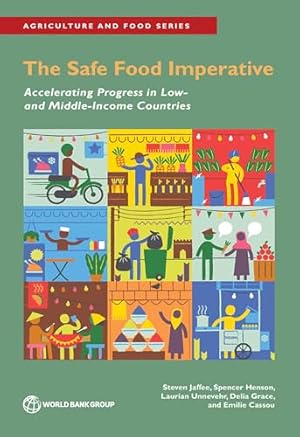Description
Food safety hazards are increasingly being recognized as a major public health problem worldwide, yetamong developing countries, there is limited understanding of the wider-ranging socio-economic costs ofunsafe food and the benefits of remedial or preventative measures. This limited evidence base has led manycountries to underinvest in food safety, or invest inefficiently in reaction to serious outbreaks of foodborneillness, other food scares, or trade interruptions. For many countries experiencing rapid urbanization anddietary changes, the growing complexity of food safety hazards is outpacing if not overwhelming prevailingfood safety management capacity-both in government and in supply chains.This report strengthens the economic case for increased public investment and other policy attention onfood safety in developing countries. It is directed primarily at policy-makers, although researchers,development practitioners and food safety specialists will also find its content of value. By synthesizing andinterpreting the available evidence on the economic costs of unsafe food in relation to both domesticmarkets and trade, the report positions food safety as an integral part of economic development and foodsystem modernization. It goes on to provide guidance on ways in which public policy and investment canimprove food safety awareness and behavior from farm to fork.
Tag This Book
This Book Has Been Tagged
Our Recommendation
Notify Me When The Price...
Log In to track this book on eReaderIQ.
Track These Authors
Log In to track Delia Grace on eReaderIQ.
Log In to track Emilie Cassou on eReaderIQ.
Log In to track Laurian Unnevehr on eReaderIQ.
Log In to track Spencer Henson on eReaderIQ.
Log In to track Steven Jaffee on eReaderIQ.
Log In to track The World Bank on eReaderIQ.
